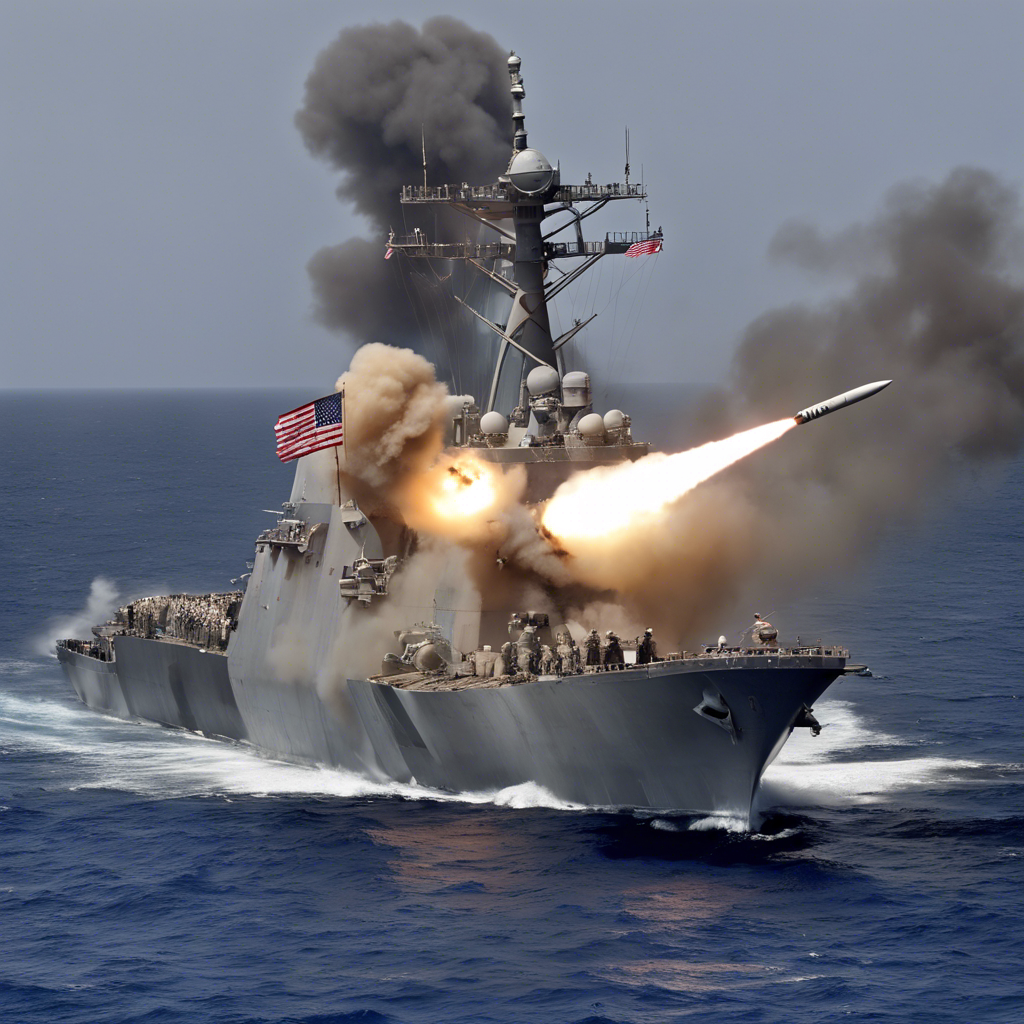US Military Shoots Down Missile Targeting USS Laboon in Yemen

First Known Attack on US Forces by Iran-backed Houthis Amidst Escalating Tensions
In a significant development amidst escalating tensions, the United States military has successfully intercepted and shot down an anti-ship cruise missile that was fired towards the USS Laboon by Iran-backed Houthis in Yemen. This marks the first known attack on US forces by the rebel group since Washington initiated its latest air strikes on Yemen. The incident comes as the US and its allies launched air and cruise missile strikes on Yemen in response to Houthi attacks on commercial shipping in the Red Sea.
US Military Successfully Defends USS Laboon
The US Central Command (CENTCOM) confirmed that a US fighter aircraft successfully shot down the anti-ship cruise missile in the vicinity of the coast of Hodeida, where the missile was fired from a Houthi-controlled area. Fortunately, there were no injuries or damage reported as a result of the attack. This incident highlights the US military’s ability to swiftly respond and neutralize threats to its forces and assets.
Houthi Attacks on Commercial Shipping
The Houthi rebel group, backed by Iran, has been carrying out repeated attacks on cargo ships in the Red Sea, which they claim are linked to Israel. These attacks are seen as a show of support for Palestinians who have been under Israeli bombardment in Gaza. Since November, the Houthis have targeted at least 26 vessels, including the seizure of the Israeli-linked Galaxy Leader. These attacks have disrupted global trade, forcing major shipping operators to redirect their vessels around the Cape of Good Hope, leading to a more than 40 percent decrease in traffic through the Red Sea.
Impact on Global Trade and Regional Stability
The attacks on commercial shipping in the Red Sea have had significant repercussions for global trade. The Red Sea normally facilitates the movement of $3 billion to $9 billion worth of cargo each day, but the ongoing attacks have caused a severe disruption. The redirection of vessels around the Cape of Good Hope has resulted in longer transit times and increased costs for shipping companies. Moreover, the decrease in traffic through the Red Sea has impacted regional economies that heavily rely on maritime trade.
Houthi Accusations and US Response
Houthi spokesman Mohammed Abdulsalam accused the US of violating national sovereignty by flying aircraft close to Yemeni airspace and coastal areas. It remains unclear if this accusation is directly linked to the missile attack on the USS Laboon. The US has been conducting airstrikes in Yemen as part of its efforts to support the internationally recognized government and counter Houthi aggression. The interception of the missile fired at the USS Laboon demonstrates the US military’s commitment to protecting its forces and assets in the region.
Conclusion:
The interception of the anti-ship cruise missile fired at the USS Laboon by Iran-backed Houthis in Yemen marks a significant escalation in tensions between the US and the rebel group. As the US and its allies continue to launch air and cruise missile strikes in response to Houthi attacks on commercial shipping in the Red Sea, the region faces heightened instability. The impact on global trade and regional economies further underscores the need for a swift resolution to the conflict. The US military’s successful defense of the USS Laboon highlights its commitment to protecting its forces and maintaining stability in the region.

